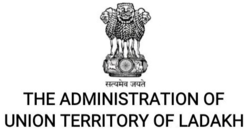| Lieutenant Governor of Ladakh | |
|---|---|
 Seal of Ladakh | |
 | |
| Style | The Honourable His Excellency |
| Type | Lieutenant Governor |
| Status | Head of State |
| Residence | Raj Niwas, Leh [2] |
| Appointer | President of India |
| Term length | Five Years |
| Inaugural holder | R. K. Mathur |
| Formation | 31 October 2019 |
| Website | Official website |
This is a list of lieutenant governors of Ladakh, a Union territory of India that came into existence on 31 October 2019. The lieutenant governor is directly appointed by the president of India, The lieutenant governor acts as the representative of the Central Government who is not obliged to the Legislature, which in case of Ladakh does not have a legislature. The Central Government governs the territory via the lieutenant governor.
Contents
On July 18, 2025, Kavinder Gupta took oath as the Lieutenant Governor of Ladakh, succeeding in the role with a pledge to rebuild the region with public support. A former Deputy Chief Minister and Speaker of the Jammu and Kashmir Assembly, Gupta emphasized promoting Ladakh as a globally recognized tourism destination. [3]



